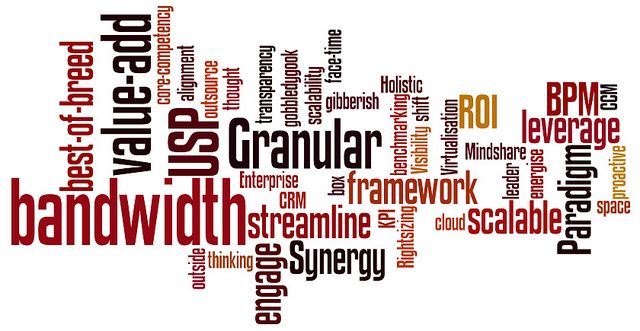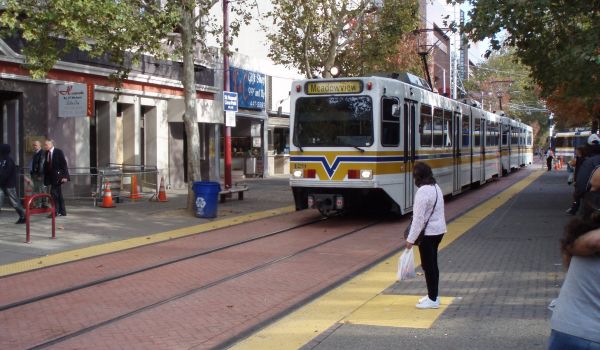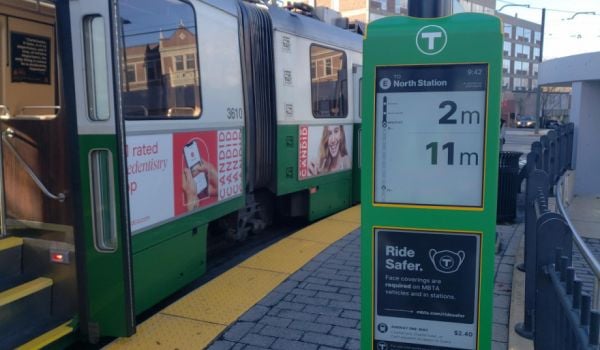This piece originally appeared on Greater Greater Washington.
Urban planners, transportation engineers and professionals in many other fields often write with a lot of jargon. This makes their writing harder for people outside the profession to understand, and even inside, it can simply make writing less clear.
When writing for a blog, it’s extra important to break out of some of the writing conventions of the professions. But to some extent, people in these fields pick up bad writing habits from each other, and could improve their own communication to colleagues by staying alert to jargon and other issues.
Examples of often unnecessarily jargon-laden writing abound. In a post on the Purple Line and Bethesda tunnel, Wayne Phyillaier of the D.C.-area blog Silver Spring Trails recently quoted the following passage from an MTA analysis:
All three of the reduced transitway width alternatives yielded very similar performance results in operational simulations. None of the three will enable the Purple Line to operate at the six-minute headway required to carry the peak period passenger demand. With substantial portions of the Purple Line operating in street-running conditions subject to traffic interference especially at intersections, the train operations need to be able to have a schedule recovery time at terminal stations, including the Bethesda Station. The operational limitations imposed by these reduced transitway width concepts at the Bethesda Station would not allow for this recovery time, which would severely reduce the reliability of the service for the entire Purple Line. Therefore, due to these fatal operational deficiencies, this family of alternatives was eliminated from further study.
This is in English, but barely. It’s about 50 percent or more transportation-engineer-speak. Say you were writing this in hopes that regular people could understand it. How could you write it? One possibility:
All three options to fit the Purple Line in a narrower space performed about the same in our simulations: None allowed running vehicles every six minutes. Trains will sometimes get delayed at intersections, since they run at street level, and therefore need enough extra time in the schedule at the end of the line to catch up from delays. These options to fit the line in a narrower space don’t accommodate that, which would make the entire Purple Line less reliable. We therefore decided to reject these options.
All I did was rewrite each sentence without jargon. Some, like “schedule recovery time,” is a technical term that has a lot of meaning, and rewriting it in layperson’s terms forces you to use more words. Others, like “performance results” or “operational limitations” are just big words that say the same thing as other, smaller and simpler words.
Writing for a wider audience, jargon gets in the way. It makes it harder for people to understand what you are saying, which diminishes your voice. Unfortunately, academic programs rarely actually focus time on how to write more clearly for laypeople, and most practitioners get little practice.
In fact, there may be subtle pressure to write less clearly. Linguistics has concepts called “style-shifting“ and “audience design.” These analyze how people write and speak differently based on whom they are speaking with. Wikipedia says, “According to [the audience design] model, speakers adjust their speech primarily towards that of their audience in order to express solidarity or intimacy with them, or away from their audience’s speech to express distance.”
A transportation engineer likely will feel good about writing in a more jargon-laden way because it creates that feeling of closeness to the other professionals who write that way. It also can make people feel a little superior to or distant from the average people who might not understand or support a project.
The downside is that this divorces the profession from people. It makes others feel that the profession is separated from, and perhaps heedless of, their everyday lives. In professions like planning and transportation, projects move along more smoothly when people feel the professionals are listening to them. Using clear language helps a lot.
When writing a plan, paper or proposal that people outside the profession could read, it would help most people to try to write more simply. Even when writing something just for colleagues, it’s still better to minimize the unnecessary jargon. Each person can set a better example for others, and push the profession gradually away from an insular, inscrutable way of communicating.
Here, we encounter these examples most often from people in urban planning and transportation fields, but it’s everywhere. Lawyers, software engineers, business executives, doctors and people in just about every other professional field do it. We’d all be better off if they could do this a little less.
David Alpert is founder and editor-in-chief of Greater Greater Washington. He will give a talk on blog writing today at the West End Library, 24th and L streets, in Washington, D.C., 6:30pm-8pm.



_600_350_80_s_c1.jpg)












